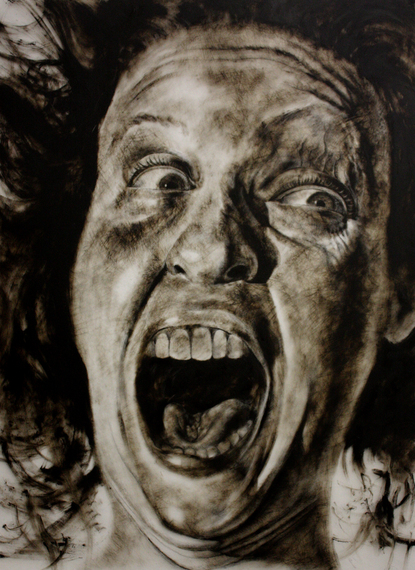"How do you keep focused and motivated to make work after college and university? I've recently finished university and I've found it really difficult to keep striving towards something that doesn't really exist. I'm working on a local art magazine and running a pop up gallery currently, but my own work is suffering. Any tips on how to stay active?"
Learning how to motivate and pace yourself after school is a major adjustment and challenge. In school, you are given concrete, weekly deadlines, with your professors cracking the whip to force you to get the work done on time. After school, that structure is suddenly gone. There are no more prompts, no more requirements, no one checking in on you. Without this framework, many recent graduates find themselves at a loss for what to do.
Life after school moves at a completely different pace compared to school. For example, I have discovered over the years that what I was able to accomplish in one week in art school would take me one month in the "real world." I now think about my projects in terms of months and years, not days and weeks. Why is this the case? After school, there are many daily duties: paying the rent, a day job, family responsibilities, social obligations, etc. Those distractions never go away. In my experience, they only seem to increase as I grow older.
With daily life consuming your time, it's far too easy to find reasons to not work on your art. You have to find methods that allow you to mentally shut down those distractions and focus intensely on your art instead. I once asked a former student why she wasn't working on her art, and her reply was "Don't I have to be 'in the mood' to work on my art?" If you wait for inspiration to strike, you could find yourself waiting your entire life. So how do I resist the temptation to make excuses and procrastinate?
Routines are key. Create routines for yourself that will stimulate an atmosphere that is conducive to artistic productivity. In recent months, I've developed a habit of listening to one song over and over again during my work sessions. Hearing that song is a trigger that tells me to forget about everything going on in my life and to get to work. Many years ago when I was just starting out, I used to hire artist models on a weekly basis. When the model showed up on my doorstep, I had to get to work because I was paying them hourly and couldn't afford to waste any precious time. I have a former colleague whose mantra is "Just start." I use this saying every time I sit down to work. Every time I finish a work session, I purposefully leave something unfinished. This way, the next time I come back it's easier to simply pick up from where I left off.
Think about your art daily. I ruminate about my art when I work out at the gym. I've worked through a number of important creative decisions while on the treadmill. I daydream regularly about the next time I get to set foot in the studio.
Develop concrete goals and deadlines for yourself, and be as specific as possible. A few years ago I decided to create a series of fifty 4' x 3' portrait drawings using etching ink and lithographic crayon. I purposefully announced the commencement of this project on my blog and documented the progress from beginning to end. I knew once I set this goal out loud for everyone to hear that I couldn't flake out. I created public pressure for myself to complete this series. Another strategy I've used is marking up my calendar annually with artist grant deadlines. I use those grant deadlines as motivation to get work done.
Maintaining a constant workflow is hugely important. Work on your art for one hour every day, instead of doing a marathon session once a week. An hour here, an hour there may not feel like much at first, but those hours do add up over time. Measure your progress in terms of months, not days. If you approach the situation with patience and tenacity, you'll be amazed at what you can accomplish.
Ask the Art Professor is a weekly advice column for visual artists. Submit your questions to clara(at)claralieu.com

